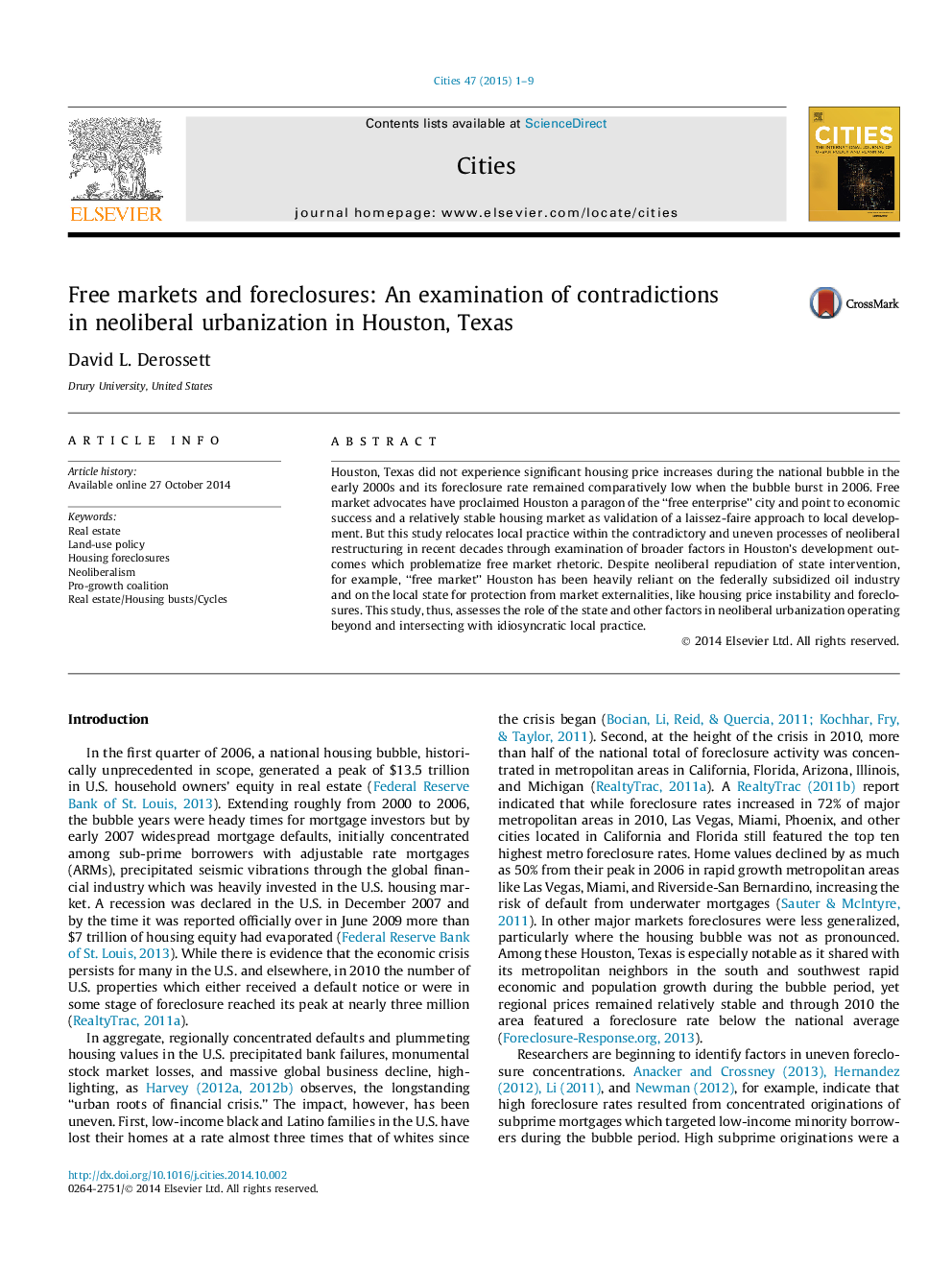| Article ID | Journal | Published Year | Pages | File Type |
|---|---|---|---|---|
| 1008242 | Cities | 2015 | 9 Pages |
•Examines Houston as model of contradictory processes of neoliberal urbanization.•Challenges role of laissez-faire policy in foreclosure mitigation in Houston.•State intervention and past crisis reduce speculative pressure in Houston.•Economic outcomes in Houston are heavily dependent on state subsidization.•Moderation of bubble and foreclosures in Houston is dependent on state protections.
Houston, Texas did not experience significant housing price increases during the national bubble in the early 2000s and its foreclosure rate remained comparatively low when the bubble burst in 2006. Free market advocates have proclaimed Houston a paragon of the “free enterprise” city and point to economic success and a relatively stable housing market as validation of a laissez-faire approach to local development. But this study relocates local practice within the contradictory and uneven processes of neoliberal restructuring in recent decades through examination of broader factors in Houston’s development outcomes which problematize free market rhetoric. Despite neoliberal repudiation of state intervention, for example, “free market” Houston has been heavily reliant on the federally subsidized oil industry and on the local state for protection from market externalities, like housing price instability and foreclosures. This study, thus, assesses the role of the state and other factors in neoliberal urbanization operating beyond and intersecting with idiosyncratic local practice.
